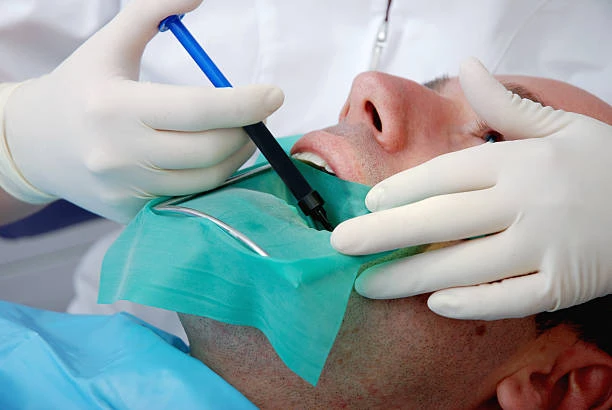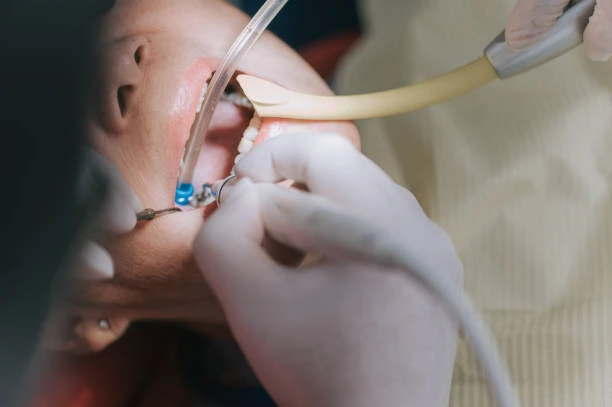Root canals may seem daunting, but they are a vital dental treatment that can save your natural teeth and alleviate pain.
Many people miss the early indicators, leading to prolonged discomfort and potentially more severe issues. So, how do you know if it’s time for a root canal?
In this Supremia Dentistry article, we’ll explore the signs you need a root canal, providing you with the knowledge to act quickly before symptoms worsen.
What is a Root Canal?
Supremia Dentistry offers root canal therapy to treat infections within the tooth’s core, known as the pulp. This treatment involves removing damaged tissue, disinfecting the area, and sealing it to prevent future complications.
Why are Root Canals Necessary?
Root canals are necessary to eliminate infections and relieve pain caused by damaged or decaying teeth. If left untreated, the infection can spread, leading to tooth loss or other severe health issues.
Common Dental Issues Leading to Root Canals
Some of the primary causes of needing a root canal include deep cavities, trauma to the tooth, or severe gum disease. Recognizing these issues early on can help prevent the need for more extensive dental treatments.
Physical Pain Symptoms
Pain is one of the most common indicators that something is wrong with your tooth. However, it’s essential to understand the types of pain that might indicate the need for a root canal.
Persistent Toothache
If you’re experiencing a toothache that refuses to go away, it’s often a sign that the pulp of your tooth is infected or damaged. A persistent and extreme toothache usually signals that the nerve within the tooth is affected.
Sensitivity to Hot and Cold
A sharp, lingering pain when eating or drinking something hot or cold could be a telltale sign of nerve damage. This sensitivity often worsens over time, making it difficult to enjoy your favorite foods and drinks.
Pain Radiating to Jaw or Ear
Pain from an infected tooth doesn’t always stay in one place. In some cases, it can radiate to your jaw or ear, making it challenging to identify the exact source. This kind of referred pain is often a strong indication that you may need a root canal.
Visible Signs of Tooth Damage
Aside from pain, there are also visible indicators that your tooth might be in trouble. These symptoms can range from discoloration to physical damage, such as cracks or chips.
Darkening or Discoloration of Tooth
Teeth that suddenly darken or become discolored are a red flag. This discoloration often means that the tooth’s internal structure is damaged or infected, requiring a root canal to save it.
Chipped or Cracked Tooth
A chipped or cracked tooth can expose the inner layers of the tooth, allowing bacteria to reach the pulp. If untreated, this can lead to an infection that necessitates a root canal.
Swollen or Tender Gums
If the area around the affected tooth appears swollen or tender, it could be a sign that the infection has spread to the gums.
Gum Boils or Pimples on Gums
Sometimes, small boils or pimples form on the gums near the infected tooth. These are often called abscesses and are a clear sign that you should seek immediate dental care.
Swelling That Spreads to Face or Neck
In more severe cases, the swelling can spread beyond the gums and affect your face or neck. This is a serious indicator of a progressing infection and should not be ignored.
Signs of Infection
Infections inside the tooth can manifest in several ways, some of which may not be immediately obvious.
Abscess Formation
Abscesses are pockets of pus caused by bacterial infections and are a clear sign that you need a root canal. The formation of an abscess often results in significant pain and swelling.
Pus Drainage Around the Tooth
If you notice any pus draining around the affected tooth, it’s a sign that the infection has reached an advanced stage. This type of infection can cause severe damage if left untreated.
Bad Taste in Your Mouth
An unpleasant taste in your mouth, despite brushing and flossing, can be due to an infection inside the tooth.
Unpleasant Odor Despite Good Oral Hygiene
Similarly, a persistent bad odor even after maintaining good oral hygiene could indicate an infection, signaling the need for a root canal.
Effects of Ignoring Root Canal Symptoms
Ignoring the signs of a root canal can have serious consequences, both in terms of pain and long-term dental health.
Worsening Pain
Tooth pain rarely goes away on its own. If you try to ignore the signs, the pain will only worsen, leading to more discomfort over time.
Spread of Infection to Other Teeth
Infections from one tooth can easily spread to others if left untreated. This can result in the need for additional dental treatments and even the loss of multiple teeth.
Risk of Tooth Loss
One of the most severe consequences of ignoring root canal symptoms is the potential loss of the tooth. A root canal is often the last resort to save the tooth before extraction becomes necessary.
Diagnosing the Need for a Root Canal
If you’re experiencing any of the symptoms mentioned above, it’s crucial to visit a dentist for a proper diagnosis.
When to Visit a Dentist
If you’re experiencing persistent pain, swelling, or any other symptoms related to a root canal, don’t wait. Schedule a dental appointment as soon as possible.
Diagnostic Tests for Root Canals
To determine whether a root canal is necessary, your dentist will perform several diagnostic tests.
X-Rays
X-rays are typically used to examine the condition of the tooth’s roots that may be exposed and surrounding bone, revealing any infection or damage.
Cold/Heat Tests
Your dentist may also apply hot or cold stimuli to the tooth to assess its sensitivity and determine if the nerve is damaged.
Importance of Early Detection
The earlier you detect the signs of a root canal, the easier it is to treat. Early intervention can save your tooth and prevent more extensive dental procedures.
Root Canal Treatment Overview
If your dentist confirms that a root canal is necessary, here’s what you can expect during the quick root canal treatment.
Step-by-Step Process
The treatment involves removing the infected pulp, cleaning the inside of the tooth, and sealing it with a filling to prevent further infection.
How Root Canals Relieve Pain
Contrary to popular belief, root canals are designed to relieve pain, not cause it. By removing the infection, the treatment eliminates the source of your discomfort.
Post-Treatment Care
After the root canal, it’s essential to follow your dentist’s care instructions to ensure proper healing.
Importance of Follow-Up Visits
Follow-up visits allow your dentist to check on the healing process and ensure that no additional treatments are necessary.
Preventing Root Canal Therapy
The best way to avoid a root canal is through proper dental care and preventive measures.
Importance of Good Oral Hygiene
Brushing, flossing, and using mouthwash regularly can help prevent the buildup of plaque and bacteria that lead to tooth decay and infection.
Regular Dental Checkups
Visiting your dentist for regular checkups can catch early signs of tooth decay before they develop into more serious issues.
Avoiding Tooth Damage
Taking steps to protect your teeth from damage can also reduce the risk of needing a root canal.
- Wearing Mouthguards: If you play contact sports or grind your teeth at night, wearing a mouthguard can protect your teeth from cracks or chips.
- Avoiding Hard Foods: Chewing on hard foods like ice or candy can lead to cracks and fractures, increasing the risk of infection.
Why Root Canals Save Teeth
Root canals not only relieve pain but also preserve your natural teeth, which is essential for long-term oral health.
- Preserving Natural Teeth: By saving your natural teeth, root canals help maintain the structure and function of your mouth.
- Long-Term Benefits of Root Canals: Root canal treatments can help preserve your smile and avoid more complex dental procedures later on.
- Alternatives to Root Canals: Are They Worth It?: While alternatives like tooth extraction exist, they often lead to more complications and higher costs in the long run.
Expert Root Canal in Wake Forest, NC
If you’re experiencing any of the signs you need a root canal, Supremia Dentistry in Wake Forest, NC, is here to help. Led by Dr. Edmond Suh, Supremia Dentistry offers expert care in root canals and a wide range of dental services.
Whether you need a root canal or want to explore other options, our experienced team can provide the relief you need.
Don’t wait for your symptoms to worsen. Contact Supremia Dentistry today to schedule your consultation and take the first step towards a pain-free smile. Our office in Wake Forest, NC, is ready to provide personalized care to help you get back to living pain-free.
Conclusion

In conclusion, recognizing the signs you need a root canal is essential for preserving your dental health and preventing further complications. If you’re experiencing persistent pain, sensitivity, or visible damage, don’t hesitate to seek professional help.
At Supremia Dentistry we provide expert root canal treatments and personalized care to ensure you receive the best possible outcome. Schedule an appointment with Supremia Dentistry today to protect your smile and alleviate discomfort.

